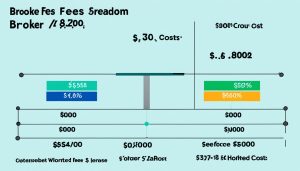Asset Wealth Management Services Tailored to Your Unique Goals and Aspirations
When it comes to managing your wealth, there is no one-size-fits-all approach. Your financial goals and aspirations are as unique as you are. That’s why asset wealth management services provided by JP Morgan offer personalized strategies designed to help you achieve your individual objectives.
Asset wealth management is much more than just investment advice. It encompasses a comprehensive range of services, including financial planning, investment management, tax planning, estate planning, cash flow management, and philanthropic planning. Whether you’re looking to grow your wealth, preserve it for future generations, or support charitable causes, asset wealth management can provide you with the guidance and expertise you need.
At JP Morgan, our team of experienced wealth managers understands that your financial future is of utmost importance. They work closely with you to develop personalized strategies that align with your goals and aspirations. Whether you’re planning for retirement, saving for your children’s education, or building a legacy, our wealth managers are here to help you every step of the way.
Key Takeaways:
- Asset wealth management services offered by JP Morgan provide personalized strategies tailored to your unique goals and aspirations.
- These services cover various aspects of financial planning, including investment management, tax planning, estate planning, cash flow management, and philanthropic planning.
- JP Morgan’s experienced wealth managers work closely with you to develop customized strategies that align with your individual needs.
- Asset wealth management offers guidance and expertise to help you achieve your long-term financial goals and preserve your wealth for future generations.
- With asset wealth management, you can have peace of mind knowing that your financial future is carefully managed by professionals who understand your unique circumstances.
Understanding Private Wealth Management
Private wealth management caters to high-net-worth individuals who may lack the time, knowledge, or expertise to handle their own finances. These individuals require a comprehensive approach to investment management that considers their unique financial situations.
Private wealth managers specialize in various areas, including income taxes, estate planning, and investment management, offering their expertise and personalized advice to guide clients through complex financial issues.
With a deep understanding of the financial landscape, private wealth managers can create customized investment portfolios that align with clients’ financial goals and risk tolerance. They provide a higher level of active management compared to traditional advisors, ensuring that clients’ wealth is optimized and protected.
Expertise Tailored to Unique Financial Situations
Private wealth managers have the expertise to tackle a wide range of financial challenges. Whether it’s devising tax-efficient strategies, creating an estate plan, or navigating investment opportunities, they possess the knowledge and experience to offer tailored solutions.
“Working with a private wealth manager allows high-net-worth individuals to tap into a wealth of knowledge and experience, leading to better financial outcomes,” says John Smith, a renowned financial expert.
By collaborating closely with clients, private wealth managers gain a thorough understanding of their unique financial situations, which empowers them to deliver personalized advice and strategies that address specific needs and aspirations.
The Benefits of Private Wealth Management for High-Net-Worth Individuals
Private wealth management offers several advantages for high-net-worth individuals:
- Personalized Financial Planning: With private wealth management, clients receive tailored financial strategies that align with their goals and aspirations.
- Expert Guidance: Wealth managers possess the expertise to navigate the complexities of the financial world, allowing clients to access a broader range of investment options and make well-informed decisions.
- Peace of Mind: Private wealth managers actively monitor investments and adapt strategies to changing market conditions, providing clients with peace of mind and confidence in their financial futures.
Despite these advantages, it’s important to consider potential drawbacks, such as the higher fees associated with private wealth management and the potential for conflicts of interest if managers prioritize certain products or investments. Nevertheless, the benefits of tailored wealth management and personalized strategies often outweigh these considerations for high-net-worth individuals seeking comprehensive financial support.
In Summary
Private wealth management provides high-net-worth individuals with the expertise and personalized guidance they need to navigate complex financial landscapes. Through customized investment portfolios and tailored strategies, wealth managers help clients achieve their unique financial goals and aspirations.
Types of Private Wealth Managers
Private wealth management services can be provided by a variety of institutions, including banks, brokerage houses, independent financial advisors, and family offices. Many private wealth management firms operate as smaller groups within larger financial institutions and focus on providing personalized service to their clients.
These firms have a team of advisors with expertise in various investment areas, such as cash, fixed-income, equities, and alternative investments. They can create diversified portfolios that meet clients’ risk tolerance and offer potential for growth.
Some high-net-worth individuals may opt to open a family office, which provides a wider range of services tailored to their specific needs.
| Types of Private Wealth Managers | Key Features |
|---|---|
| Banks | Provide a wide range of financial services and have diversified investment offerings. |
| Brokerage Houses | Offer investment advice, trade execution, and access to financial markets. |
| Independent Financial Advisors | Provide personalized financial advice based on clients’ unique goals and circumstances. |
| Family Offices | Offer comprehensive financial services tailored to the needs of high-net-worth individuals and their families. |
Private Wealth Management Fee Structure
When it comes to private wealth management, understanding the fee structure is crucial for clients to make informed decisions about their financial future. Private wealth management firms offer various fee options to accommodate different client preferences and needs.
- Fee-based: Most private wealth management firms charge a fee based on the assets under management. This fee is typically a percentage of the total value of the client’s portfolio. It ensures that the wealth manager’s interests align with the client’s, as they are incentivized to grow the portfolio value.
- Fixed or flat fee: Some wealth managers offer a fixed or flat fee regardless of the portfolio size. This fee structure provides transparency and predictability for clients, particularly those with larger portfolios.
- Performance fee: In addition to the base fee, some wealth managers may charge a performance fee based on the investment gains achieved above a certain benchmark. This fee structure aligns the manager’s compensation with their ability to generate positive returns.
- Wrap fee: A wrap fee is a comprehensive fee that covers various services, including investment management, financial planning, and other related services. It offers clients convenience and peace of mind, knowing that all their wealth management needs are taken care of under a single fee structure.
Additionally, some wealth managers may earn commissions from the sale of financial products, but it is important for clients to understand any potential conflicts of interest that may arise due to such arrangements.

Overall, clients should carefully evaluate and compare different fee structures offered by private wealth management firms to ensure they align with their financial goals and preferences.
Advantages and Disadvantages of Private Wealth Management
Private wealth management offers several advantages that can significantly benefit high-net-worth individuals seeking personalized financial strategies. Wealth managers possess the expertise necessary to navigate complex financial markets, providing clients with access to a wider range of investment options.
One of the key advantages of private wealth management is the peace of mind it offers. Wealth managers actively monitor investments and adapt financial strategies as market conditions fluctuate, ensuring clients’ portfolios remain optimized and aligned with their goals.
However, it’s important to consider the potential drawbacks of private wealth management. High fees are often associated with these services, particularly for clients with large portfolios. These fees can impact overall investment returns and should be carefully evaluated against the value provided by wealth managers.
Another potential concern is the possibility of conflicts of interest. Some wealth managers may prioritize products or investments that generate higher commissions, potentially influencing their recommendations. It’s crucial for clients to thoroughly assess the transparency and integrity of their wealth managers to ensure their best interests are being served.
Additionally, clients may encounter limited investment options when working with certain wealth managers. This can arise if managers emphasize proprietary products or strategies, potentially restricting clients’ access to a diversified investment portfolio.
While private wealth management offers many benefits such as personalized financial strategies and expertise in navigating financial markets, it’s important for individuals to carefully evaluate the associated fees, potential conflicts of interest, and limited investment options to determine if this service aligns with their specific needs and goals.
Conclusion
Private wealth management services offered by JP Morgan and other institutions provide tailored strategies to help individuals achieve their financial goals. These services involve comprehensive financial planning, investment management, tax planning, estate planning, cash flow management, and philanthropic planning. Wealth managers work closely with their clients to understand their unique circumstances and develop personalized strategies that align with their goals and aspirations.
While private wealth management fees can be high, the expertise, personalized advice, and peace of mind they provide can make a significant difference in clients’ financial success. With the help of a wealth manager, individuals can navigate the complexities of the financial markets and strive to achieve their long-term financial aspirations. Tailored wealth management ensures that clients’ financial goals are at the forefront, and strategies are crafted specifically to meet their needs.
By leveraging personalized strategies, individuals can have confidence in their financial decisions and take steps towards building and preserving their wealth. Private wealth managers bring a wealth of knowledge and expertise to the table, allowing clients to make informed choices and optimize their investment portfolios. Overall, private wealth management offers a comprehensive approach to financial planning, enabling individuals to forge a path towards financial prosperity and achieve their unique financial goals.




